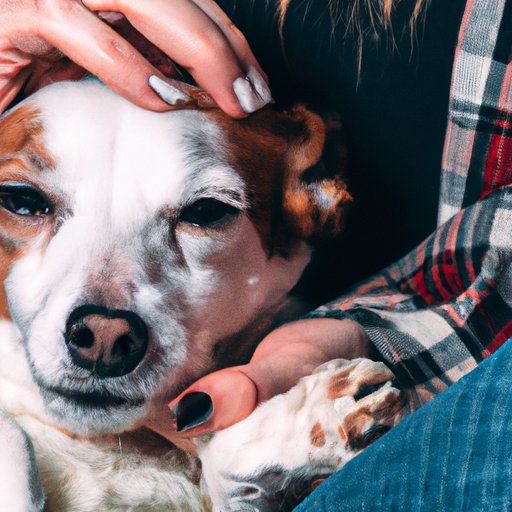Introduction
Kennel cough, also known as infectious tracheobronchitis, is a highly contagious respiratory disease that affects dogs of all ages and breeds. It is often spread through close contact with other dogs, such as in kennels, dog parks, and grooming facilities. In this article, we will explore various methods for treating kennel cough, including home remedies, veterinary treatment options, prevention methods, and ways to support your dog’s recovery.
Home Remedies
While kennel cough often resolves on its own within a few weeks, there are several home remedies that may help alleviate symptoms and speed up the healing process.
Honey
Honey has natural antibacterial and anti-inflammatory properties, making it a popular choice for treating kennel cough. Simply mix a spoonful of honey into your dog’s food, or give them a spoonful directly. You can do this up to three times a day until symptoms improve.
Steam Therapy
Steam therapy can help loosen congestion and relieve coughing. You can use a humidifier or bring your dog into the bathroom while you run a hot shower to create steam. Be sure to keep your dog away from the hot water and supervise them at all times.
Essential Oils
Essential oils such as eucalyptus, lavender, and peppermint can help soothe your dog’s throat and promote relaxation. However, it is important to note that essential oils can be toxic to dogs if ingested or applied directly to the skin. It is best to use a diffuser or dilute the oils in a carrier oil before use.
Veterinary Treatment Options
If your dog’s symptoms are severe or do not improve with home remedies, you may need to seek veterinary treatment. Your vet may recommend one or more of the following options:
Antibiotics
Antibiotics are often prescribed to treat kennel cough caused by bacterial infections. It is important to finish the entire course of antibiotics, even if your dog’s symptoms improve before the medication is finished.
Cough Suppressants
Cough suppressants can help alleviate your dog’s coughing and allow them to rest more easily. However, it is important to consult with your vet before giving your dog any medications.
Nebulization
Nebulization involves delivering medication directly to your dog’s respiratory system through a mask or chamber. This can be especially effective for treating severe cases of kennel cough.
Prevention Methods
The best way to treat kennel cough is to prevent it from happening in the first place. Here are a few prevention methods you can use:
Vaccination
Most kennel cough cases can be prevented with the Bordetella vaccine. Talk to your vet about whether your dog should be vaccinated.
Proper Hygiene Practices
Regularly cleaning your dog’s food and water bowls, bedding, and toys can help prevent the spread of kennel cough. Additionally, avoid taking your dog to places where they may be exposed to other sick dogs.
Supporting Your Dog’s Recovery
While your dog is recovering from kennel cough, there are several things you can do to help them feel more comfortable:
Providing Rest
Your dog will likely need plenty of rest to recover from kennel cough. Be sure to provide a quiet, comfortable place for them to sleep.
Hydration
Ensure that your dog has access to plenty of fresh water to help flush out any toxins and keep them hydrated.
Healthy Diet
A healthy, balanced diet can help support your dog’s immune system and aid in their recovery.
When to See a Vet
In some cases, kennel cough can lead to more serious respiratory infections and even pneumonia. It is important to seek veterinary care if your dog experiences any of the following symptoms:
Severe Symptoms
If your dog is experiencing severe symptoms such as coughing fits, difficulty breathing, or lethargy, seek veterinary care immediately.
Loss of Appetite
A loss of appetite can be a sign that your dog is not feeling well and requires medical attention.
Breathing Difficulties
If your dog is having trouble breathing, seek emergency veterinary care as soon as possible.
Conclusion
Kennel cough is a common respiratory disease that can be treated with proper care and medical attention. By using home remedies, seeking veterinary treatment when necessary, and taking steps to prevent the spread of kennel cough, you can help ensure your dog recovers quickly and remains healthy and happy. Remember, if your dog is experiencing severe symptoms or breathing difficulties, seek veterinary care immediately.
